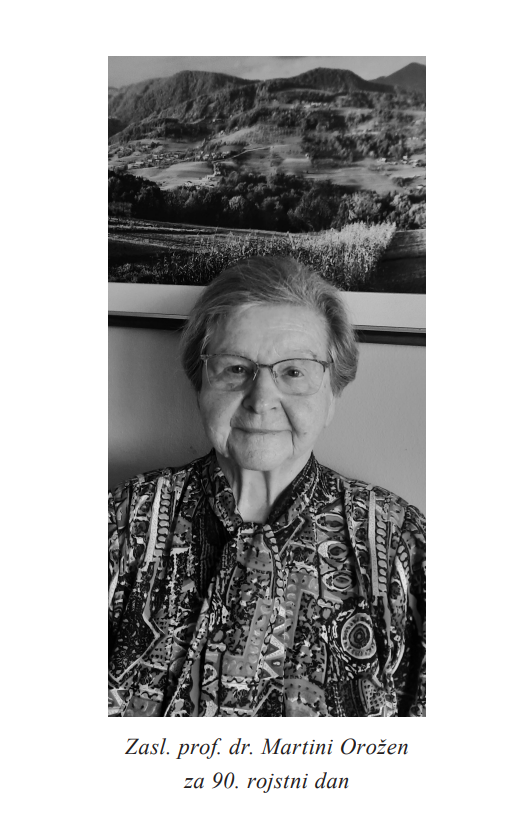Angielskie czasowniki statyczne ‘hope’ i ‘love’ i aspekt ciągły: w przykładach z COCA
DOI:
https://doi.org/10.18690/scn.14.2.202–215.2021Ključne besede:
angleščina, leksikalni vidik, nedovršna oblika glagolskega vida, statični glagoli, korpus, konkordanca, posebnosti rabePovzetek
Namen prispevka je nematerne govorce angleščine na podlagi primerov iz korpusa COCA seznaniti z rabo ne preveč priljubljenih struktur, kot sta I am hoping ‘upam’ in I am loving ‘ljubim’, v katerih so t. i. statični glagoli rabljeni v nedovršni obliki. Ti glagoli praviloma ne izkazujejo nedovršne oblike, kljub temu pa, kot kažejo primeri konkordanc s korpusa COCA, obstajajo posebne okoliščine, v katerih materni govorci angleščine (konkretno ameriške angleščine), omenjene strukture uporabljajo pri komunikaciji. Možne so le v posebnih okoliščinah, spodbudijo pa jih lahko leksikalni in slovnični razlogi ter govorne navade. Korpus COCA vsebuje številne situacije avtentične rabe angleščine, v katerih so omenjeni glagoli uporabljeni v nedovršni obliki, zato je v prispevku nanje opozorjeno.
Prenosi
Literatura
Douglas BIBER, Stig JOHANSSON, Geoffrey LEECH, Susan CONRAD i Edward FINEGAN, 1999: Longman Grammar of Spoken and Written English. Harlow: Pearson Education Limited.
Douglas BIBER, 2005: Corpus Linguistics and the Study of English Grammar. Indonesian Journal of English Language Teaching 1/1.
Joan BYBEE, 2010: Language, Usage and Cognition. Cambridge: Cambridge University Press.
Dorota CHŁOPEK, 2019: Determinate and indeterminate motion verbs in Polish expressions contrasted to translatable English versions. Świat i Słowo: filologia, nauki społeczne, filozofia, teologia 2/33, 193–214.
Bernard COMRIE, 1976: Aspect: An Introduction to the Study of Verbal Aspect and Related Problems. Cambridge: Cambridge University Press (wersja poprawiona 1981/1991).
William CROFT, 1991: Syntactic categories and grammatical relations: the cognitive organization of information. Chicago: University of Chicago Press.
– –, 2000: Explaining Language Change: An Evolutionary Perspective. London: Longman.
– –, 2012: Verbs. Aspect and Causal Structure. Oxford i New York: Oxford University Press.
David R. DOWTY, 1979: Word Meaning and Montague Grammar. Dordrecht: D. Reidel Publishing Company.
– –, 1986: The Effects of Aspectual Class on the Temporal Structure of Discourse: Semantics or Pragmatics? Linguistics and Philosophy 9, 37–61.
Talmy GIVÓŃ, 2001: Syntax: An Introduction I. Amsterdam: John Benjamins Publishing.
– –, 1986: The Effects of Aspectual Class on the Temporal Structure of Discourse: Semantics or Pragmatics? Linguistics and Philosophy 9. Dordrecht, Holland: D. Reidel Publishing Company, 37–61.
Stefan Th. GRIES, 2010: Corpus linguistics and theoretical linguistics: a love-hate relationship? Not necessarily … International Journal of Corpus Linguistics 15, 327–343. Dostęp dnia 03 stycznia 2019 roku. Adres dostępu: [http://www.linguistics.ucsb.edu/faculty/stgries/research/2010_STG_Corp Ling LingTheory_IJCL.pdf]
Ronald W. LANGACKER, 1987: Foundations of Cognitive Grammar. Volume I: Theoretical Prerequisites. Stanford, California: Stanford University Press.
– –, 2008: Cognitive Grammar: A Basic Introduction. Oxford: Oxford University Press.
Geoffrey N. LEECH, 1992: Corpora and theories of linguistic performance. Directions in corpus linguistics. Proceedings of Nobel Symposium 82. Red. Jan Svartvik. Berlin/New York: Mouton de Gruyter. 105–122.
Tony McENRY i Andrew WILSON, 1996: Corpus linguistics: An Introduction. Edinburgh: Edinburgh University Press.
Charles F MEYER, 2002: English Corpus Linguistics: An Introduction. Cambridge: Cambridge University Press.
Alexander P. D. MOURELATOS, 1978: Events, Processes, and States. Linguistics and Philosophy 2. Dordrecht: D. Reidel Publishing Company, 415–434.
Randolph QUIRK, Sidney GREENBAUM, Geoffrey LEECH i Jan SVARTVIK, 1985: A Comprehensive Grmammar of the English Language. Horlow: Pearson Education Limited. Wydanie nr 21 w roku 2007.
Susan ROTHSTEIN, 2012: Another Look at Accomplishments and Incrementality. Telicity, Change, and State: A cross-categorial view of event structure. Red. Violeta Demonte i Louise McNally. Oxford: Oxford University Press. 60–102.
John SINCLAIR, 1991: Corpus, concordane, collocation: Describing English language. Oxford: Oxford University Press.
– –, 2004: Corpus and Text-Basic Principles. Developing Linguistic Corpora: a Guide to Good Practice. Red. M. WYNNE. Oxford: University of Oxford, AHDS Literature, Languages and Linguistics. 1–20.
Carlota S. SMITH, 1997: The Parameter of Aspect (Second Edition). Dordrecht: Springer Science+Business Media. Pierwsze wydanie opublikowane w 1997 przez Kluwer Academic Publishers.
Wolfgang TEUBERT, 2005: My version of corpus linguistics, International Journal of Corpus Linguistics 10, 1–13.
Michael TOMASELLO, 2003: Constructing a Language: A Usage-Based Theory of Language Acquisition. Cambridge, MA: Harvard University Press.
Zeno VENDLER, 1967: Verbs and Times. Linguistics in Philosophy. Ithaca, NY: Cornell University Press.
Prenosi
Objavljeno
Številka
Rubrika
Licenca
Avtorske pravice (c) 2021 Univerzitetna založba Univerze v Mariboru

To delo je licencirano pod Creative Commons Priznanje avtorstva-Nekomercialno 4.0 mednarodno licenco.
Avtorske pravice
Članki so objavljeni pod pogoji mednarodne licence CC BY-SA. https://creativecommons.org/licenses/by-sa/4.0/deed.sl
Plagiatorstvo
Slavia Centralis je nekomercialna in prosto dostopna mednarodna znanstvena revija. Kot taka je zavezana etičnim načelom glede zaupnosti, izvirnosti in intelektualne poštenosti. Kršenje avtorskih pravic in plagiatorstvo obravnava zelo resno, zaradi česar z ustrezno programsko opremo preverja morebitno podobnost z vsebino drugih besedil.
Avtorji morajo upoštevati naslednje:
Predloženo besedilo mora biti izvirni znanstveni članek. Vsi viri morajo biti korektno navedeni. Besedilo ne sme biti istočasno predloženo uredniški presoji drugih publikacij.
Za vključeno gradivo (citati, ilustracije, tabele ipd.) je treba pridobiti ustrezna dovoljenja, ki izhajajo iz avtorskih pravic.
Objava v reviji Slavia Centralis ne predvideva plačila.
